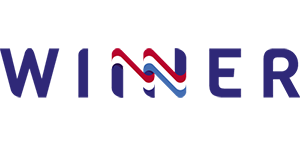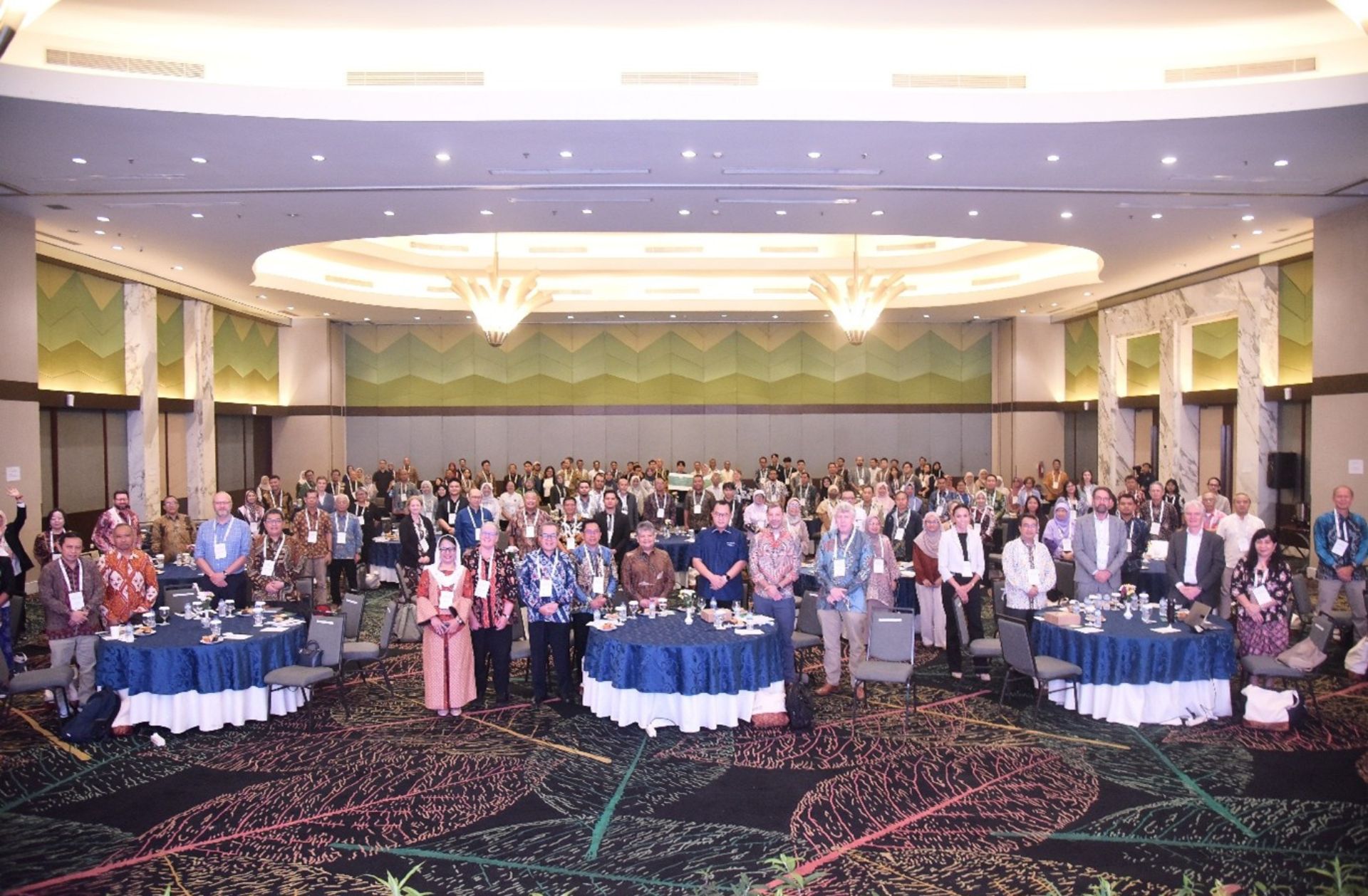Implementation of Practices for Sustainable Palm Oil Production
Implementation of Practices for Sustainable Palm Oil Production
Palm oil is one of Indonesia’s most significant and controversial commodities. As the world’s largest producer, Indonesia depends heavily on palm oil for its national income and rural livelihoods – around 40% of plantations are managed by smallholders who depend on it for their families’ well-being. Simultaneously, the industry faces ongoing scrutiny for its role in deforestation, the emission of greenhouse gases, and biodiversity loss. This dual reality makes palm oil both a lifeline and a challenge. The question, then, is not whether palm oil should be produced, but how it can be produced more sustainably.
Over the past three years, the SustainPalm programme has actively worked to advance the sustainability of palm oil production in Indonesia by identifying, implementing, monitoring, improving, and promoting sustainable practices aimed at providing livelihoods and income without expanding the production area. By sparing land, deforestation is reduced, GHG emissions are lowered and biodiversity is preserved. Each innovation needs to be economically viable and socially embedded, hence inclusive business models have been developed to aim at a balance between economic growth, environmental stewardship, and social responsibility.
A unique strength of the programme lies in the collaboration between Indonesia and the Netherlands, bringing together students and researchers from Van Hall Larenstein University of Applied Sciences, Wageningen University & Research, Universitas Lambung Mangkurat and IPB University. This partnership has created a space where science meets practice, combining applied research with farmer engagement, business case development, and dialogues with public and private stakeholders.
Turning knowledge into action
Through hands-on initiatives the programme shows how actionable science can be mobilized to inform policy and practices.
Intercropping was implemented in the first three years of oil palm cultivation with smallholders and large plantations, including crops such as watermelon, banana, rice, corn and jack bean. After implementing the practices and jointly monitoring them with farmers, companies and universities, the adoption of the practices accelerated rapidly because a small social enterprise assured credit, inputs, agronomic oversight and market. Integration with livestock grazing from year 5 onwards acts as weed control, reducing the need for herbicides. Both activities generate additional income per hectare, improve biodiversity in oil palm fields, and save land. In all activities, students from Indonesia and the Netherlands were trained. Currently, the Indonesian government is rolling out these integrated systems. Via a webinar series and exchange visits the practices are shared. Videos explain the practices and business models to a wider public.
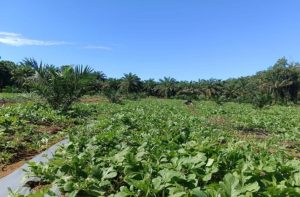
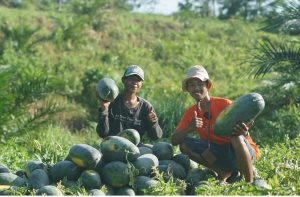
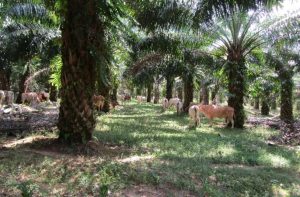
Other examples of actions include the ‘Best Idea for the Peatlands Student Challenge’, where students from Indonesia and the Netherlands connect with industry experts and create a Sustainable Business Model Canvas for income generating activities or sustainable crop cultivation (other than oil palm) for smallholder farming families or entrepreneurs in peat areas and surroundings in Indonesia. Learn more about the most feasible ideas here. Another example are the Oil Palm Trunk (OPT) workshops in Bogor and Wageningen that provide hands-on demonstrations of how OPT can be utilized in construction and furniture production, leading to sustainable, strong, and stunning wood products. The various Knowledge Clips produced by the consortium translate (complex) information into an accessible format, further supporting learning and practices: From Waste to Wealth, Oil Palm Trunk for Furniture and Building Materials & Development of sugar potential from oil palm trunks – SustainPalm
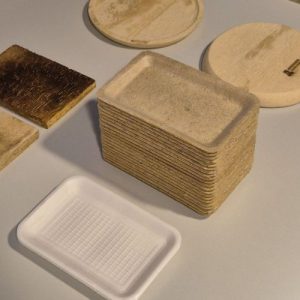
Using OPT by processing it into trays and coasters is an innovative way to turn agricultural waste into valuable products while reducing deforestation and the need for additional timber harvesting.
The culmination of SustainPalm’s collaborative spirit was seen in the large closing event in Bogor, held from 1-3 September 2025, which brought together a wide spectrum of stakeholders, enriching discussions with diverse perspectives and offering inspiration for continued efforts in sustainable palm oil production.
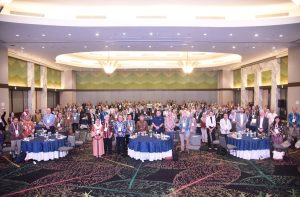
SustainPalm closing event in Bogor, attended by several high-level representatives from the Indonesian Coordinating Ministry of Economic Affairs and the Embassy of the Kingdom of the Netherlands in Indonesia
Looking ahead
Although the official project timeline will conclude by the end of October 2025, SustainPalm has laid a solid foundation for future work in the sector. Join us for the session ‘The Sustainpalm Programme: Results and Follow up’ on the third day of the WINNER conference to learn more about the programme’s outcomes and the next steps for ensuring its long-term impact.
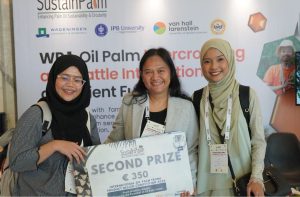
The “International Oil Palm Trunk Product Design Competition” was held to promote the utilization of OPT in design an manufacturing as an alternative to timber, and foster knowledge exchange and discussion on the utilization of and management of OPT.
